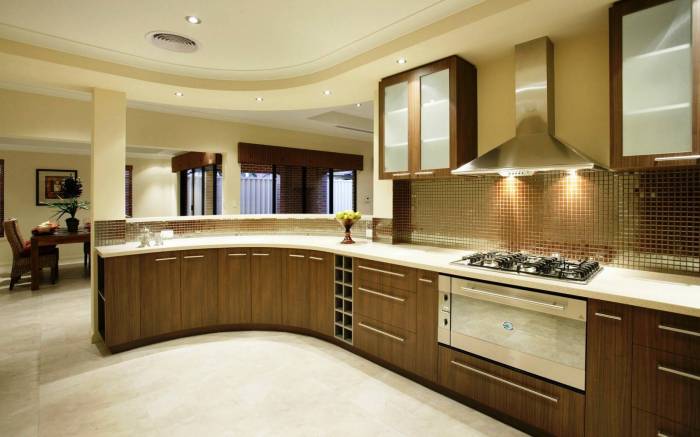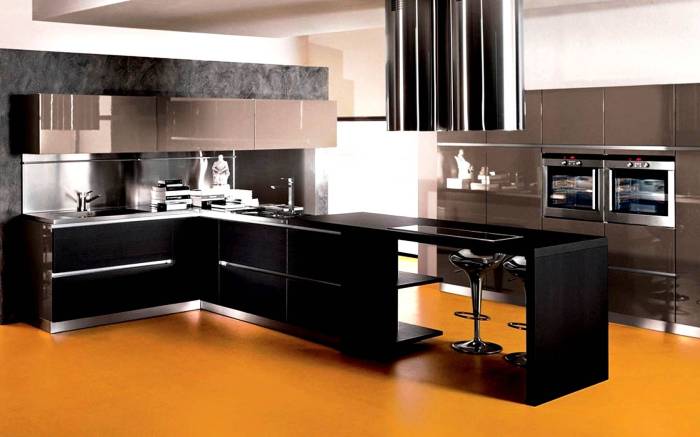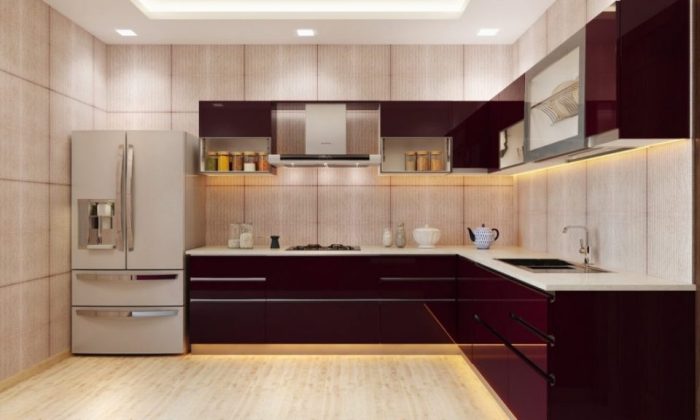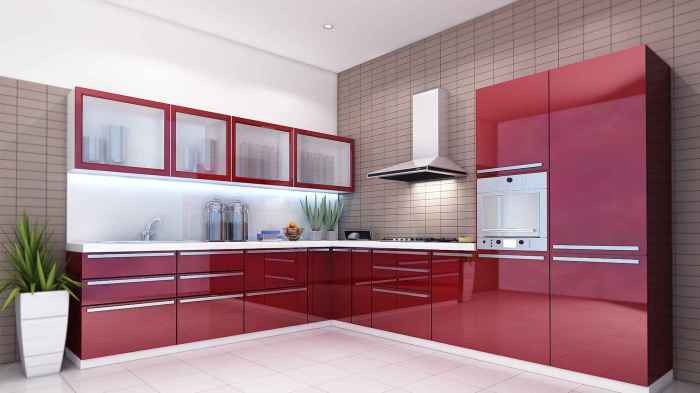Tips for Designing a Modular Kitchen That’s Tech-Savvy invites you to envision a kitchen that seamlessly blends functionality, style, and innovation. From space optimization techniques to smart appliance integration, this guide empowers you to create a kitchen that meets your unique needs and elevates your cooking experience.
By embracing these tips, you’ll not only enhance the aesthetics of your kitchen but also transform it into a space that’s both efficient and enjoyable to use. So, let’s dive into the world of tech-savvy modular kitchens and unlock a whole new level of culinary convenience.
Space Optimization Techniques
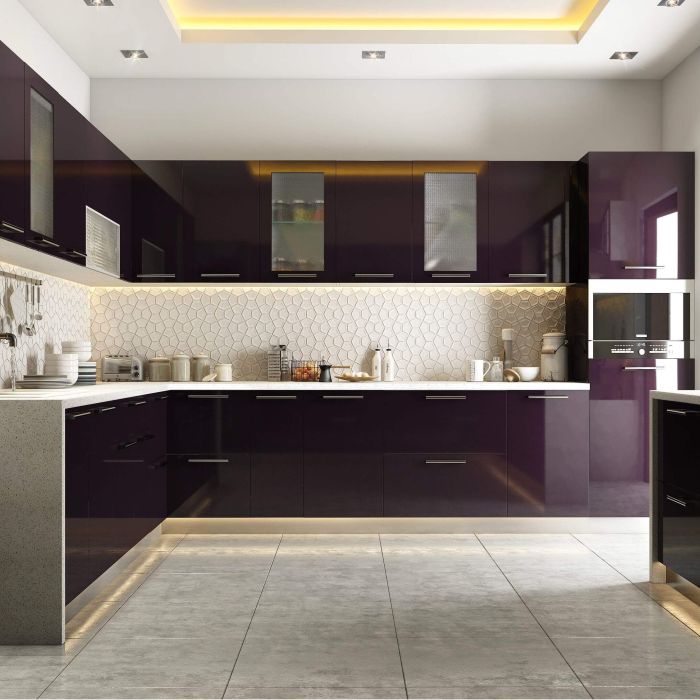
In modular kitchens, maximizing storage capacity is crucial to ensure efficiency and functionality. By implementing clever space-saving solutions, you can create a well-organized and clutter-free cooking space. Here are some effective techniques to consider:
Innovative Storage Solutions:
- Pull-out Drawers:Replace traditional cabinet doors with pull-out drawers to gain easy access to items stored deep within cabinets. They provide a clear view of contents and prevent items from getting lost.
- Corner Units:Utilize the often-wasted corner space with specialized corner units. These units feature revolving shelves or lazy Susans that allow you to reach items easily.
- Vertical Organizers:Install vertical organizers within cabinets to create additional storage space. These organizers can be customized to accommodate different items, such as spices, utensils, and cleaning supplies.
Multi-Purpose Furniture and Appliances:
- Kitchen Islands:Kitchen islands serve multiple functions, providing extra storage space, a work surface, and even seating. Choose islands with built-in drawers, shelves, or cabinets to maximize storage.
- Multi-Tiered Shelves:Utilize multi-tiered shelves to create vertical storage space. These shelves can be used to store cookware, appliances, or dry goods.
- Stackable Appliances:Consider stackable appliances, such as a washer and dryer or a refrigerator and freezer, to save floor space.
Smart Appliance Integration
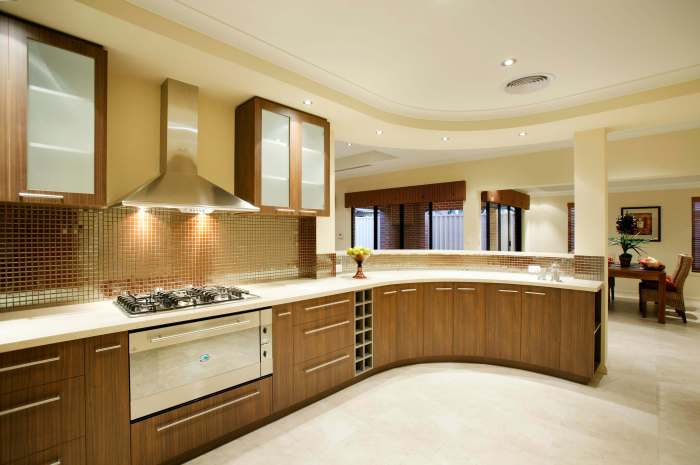
Integrating smart appliances into modular kitchens offers numerous advantages, enhancing convenience, efficiency, and sustainability.Smart refrigerators, for instance, monitor food inventory, reducing waste by alerting you to expiring items. They also allow remote access, enabling you to check contents and make grocery lists from anywhere.
Smart ovens provide precise temperature control and guided cooking, ensuring perfect results every time. Additionally, smart dishwashers optimize water and energy consumption by adjusting settings based on load size and soil level.
Energy Optimization and Food Waste Reduction
Smart appliances contribute significantly to energy conservation and food waste reduction. By monitoring usage patterns and adjusting settings accordingly, they minimize energy consumption. Moreover, smart refrigerators and dishwashers detect and alert you to potential leaks or maintenance issues, preventing costly repairs and water wastage.
Ergonomic Design Principles: Tips For Designing A Modular Kitchen That’s Tech-Savvy
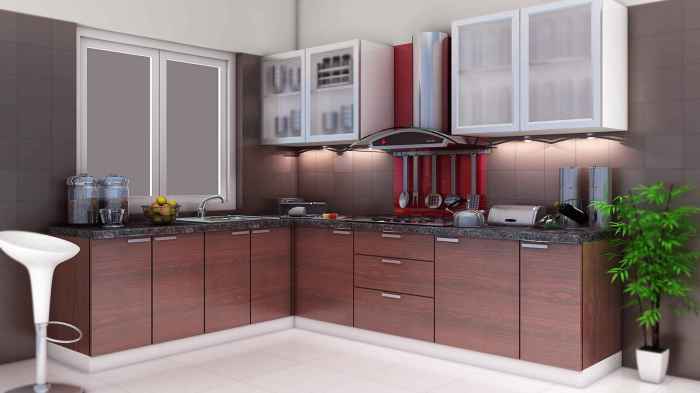
Ergonomic design principles in modular kitchens prioritize comfort, efficiency, and accessibility. By adhering to these principles, you can create a kitchen that is both functional and enjoyable to use.
Optimal Counter Heights
The height of your kitchen counters should be determined by your height and the tasks you typically perform. The ideal counter height allows you to work comfortably without straining your back or neck. For most people, a counter height between 34 and 36 inches is recommended.
Cabinet Placement
The placement of your cabinets should also be carefully considered. Lower cabinets should be within easy reach, while upper cabinets should be high enough to avoid bumping your head. Consider using adjustable shelves and drawers to accommodate items of different sizes and shapes.
Lighting
Proper lighting is essential for a safe and efficient kitchen. Natural light is always preferable, but it’s important to have adequate artificial lighting as well. Task lighting, such as under-cabinet lights, can help you see what you’re doing while you’re cooking or cleaning.
Adjustable Work Surfaces and Assistive Technologies, Tips for Designing a Modular Kitchen That’s Tech-Savvy
Adjustable work surfaces and assistive technologies can make your kitchen more accessible for people with disabilities or limited mobility. Adjustable work surfaces allow you to change the height of your counters to accommodate your needs. Assistive technologies, such as voice-activated controls or motion-activated sensors, can make it easier to use your kitchen without having to reach or bend.
Customization and Personalization
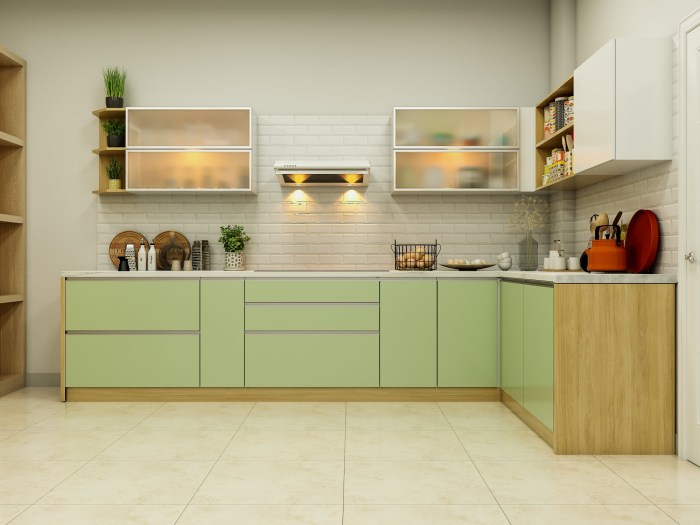
Modular kitchens offer a myriad of options for customization, allowing you to tailor your kitchen to your specific needs and preferences. From cabinet styles and finishes to hardware and decorative elements, the possibilities are endless.
Cabinet Styles
Choose from a range of cabinet styles, including traditional, contemporary, and modern. Traditional styles feature intricate carvings and moldings, while contemporary cabinets have clean lines and sleek surfaces. Modern styles embrace minimalism and functionality, often incorporating open shelving and handleless designs.
Cabinet Finishes
Cabinet finishes vary from classic wood grains to bold colors and metallic accents. Wood finishes add warmth and character, while painted finishes provide a pop of color or a sophisticated neutral. Consider finishes that complement your kitchen’s overall design and color scheme.
Hardware
Hardware, such as knobs and pulls, can enhance the style and functionality of your kitchen. Choose hardware that matches the cabinet style and finish, and consider ergonomic designs for comfortable use.
Personal Touches
Incorporate personal touches to make your kitchen unique and inviting. Display artwork or family photos, add decorative elements like plants or vases, and choose lighting fixtures that create a warm and welcoming ambiance.
Sustainability Considerations
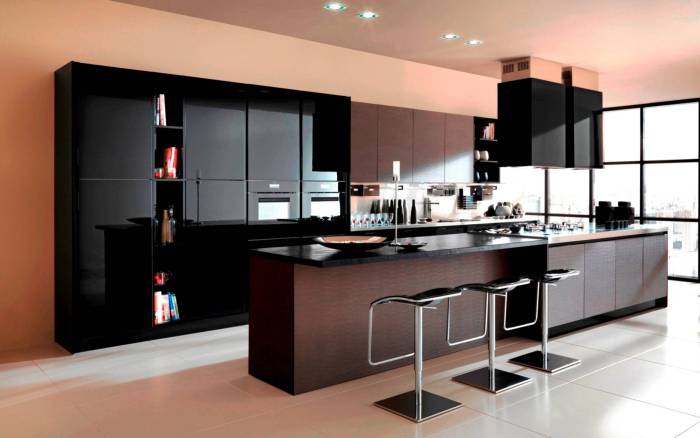
Incorporating sustainability into your modular kitchen design not only benefits the environment but also aligns with the growing demand for eco-conscious living.
Sustainable modular kitchens prioritize the use of eco-friendly materials, energy-efficient appliances, and waste reduction strategies to minimize environmental impact.
Eco-Friendly Materials
Consider materials like recycled wood, bamboo, and low-VOC finishes. These options reduce deforestation, promote responsible resource management, and improve indoor air quality.
Energy-Efficient Appliances
Invest in appliances with Energy Star ratings, which indicate compliance with strict energy efficiency standards. This can significantly reduce energy consumption and lower utility bills.
Waste Reduction Strategies
Implement waste sorting and composting systems to minimize landfill waste. Choose modular components that are designed for easy disassembly and recycling at the end of their lifespan.
Closing Notes
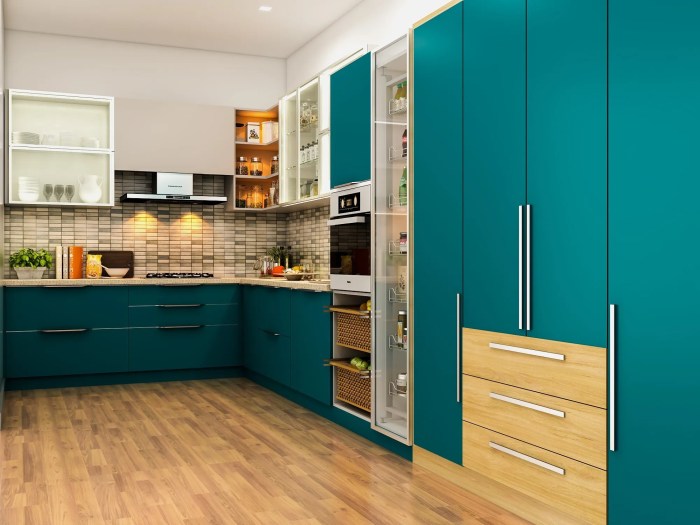
In conclusion, designing a tech-savvy modular kitchen is about striking a balance between functionality, aesthetics, and sustainability. By incorporating these tips, you can create a space that’s not only visually appealing but also highly efficient and environmentally friendly. So, embrace the possibilities of modular kitchens and transform your cooking experience with smart solutions that make life easier and more enjoyable.
Questions Often Asked
What are the key benefits of a tech-savvy modular kitchen?
Tech-savvy modular kitchens offer numerous benefits, including increased storage capacity, enhanced convenience, energy efficiency, and personalized customization.
How can I optimize space in a modular kitchen?
To optimize space, consider using pull-out drawers, corner units, vertical organizers, and multi-purpose furniture and appliances.
What are the advantages of integrating smart appliances into a modular kitchen?
Smart appliances offer convenience, efficiency, energy optimization, and reduced food waste.
How can I incorporate ergonomic design principles into my modular kitchen?
For ergonomic design, focus on optimal counter heights, cabinet placement, and lighting, and consider adjustable work surfaces and assistive technologies.
